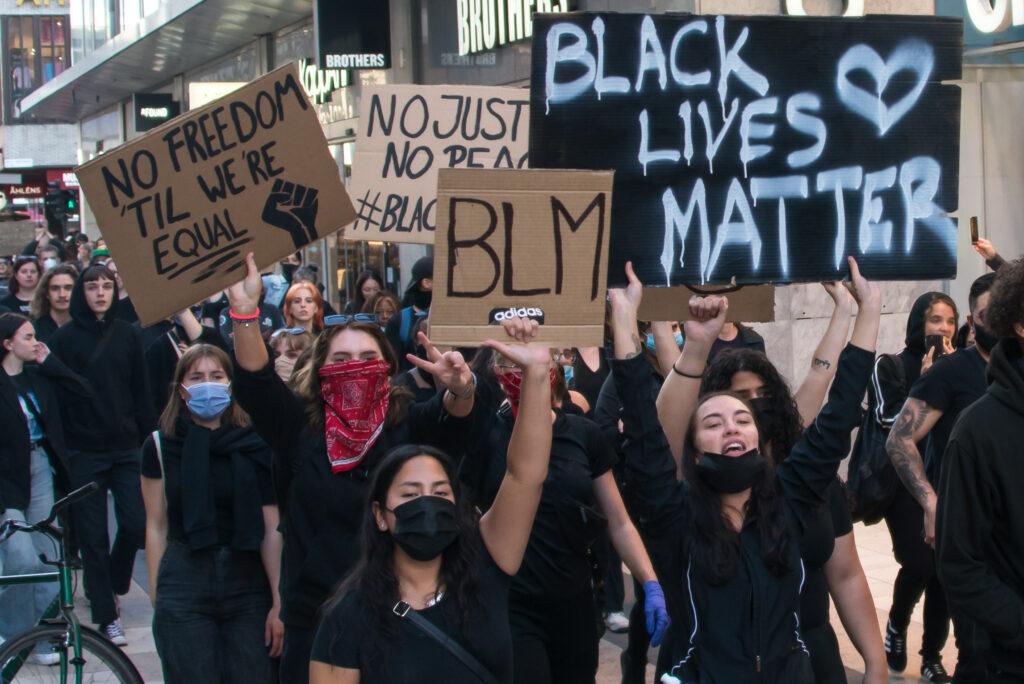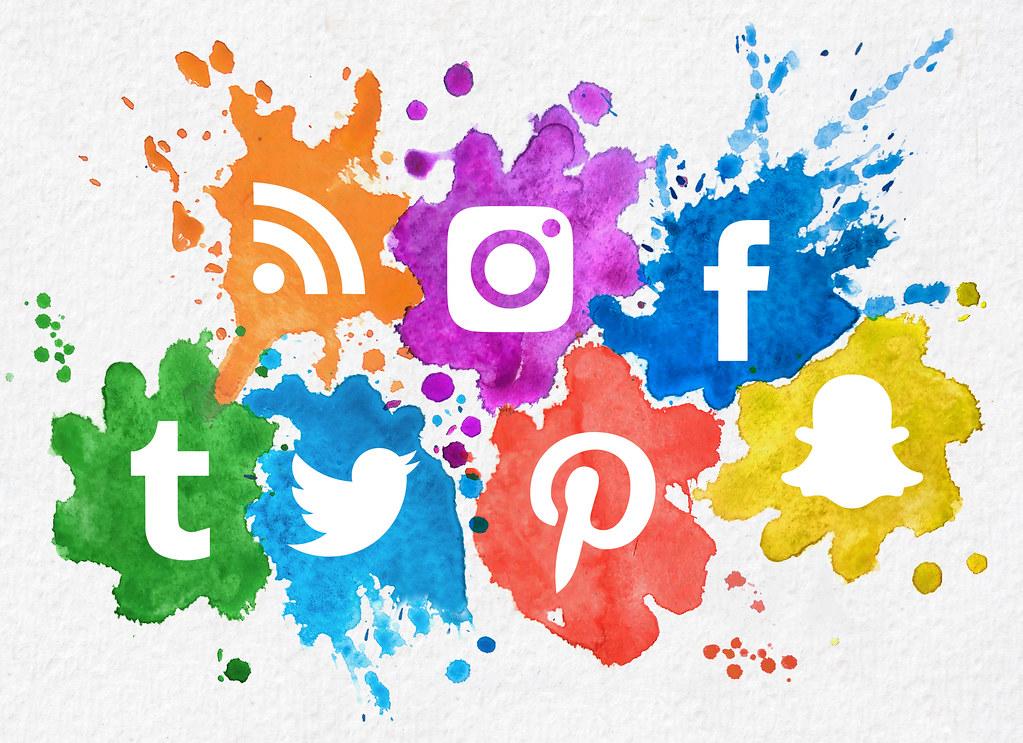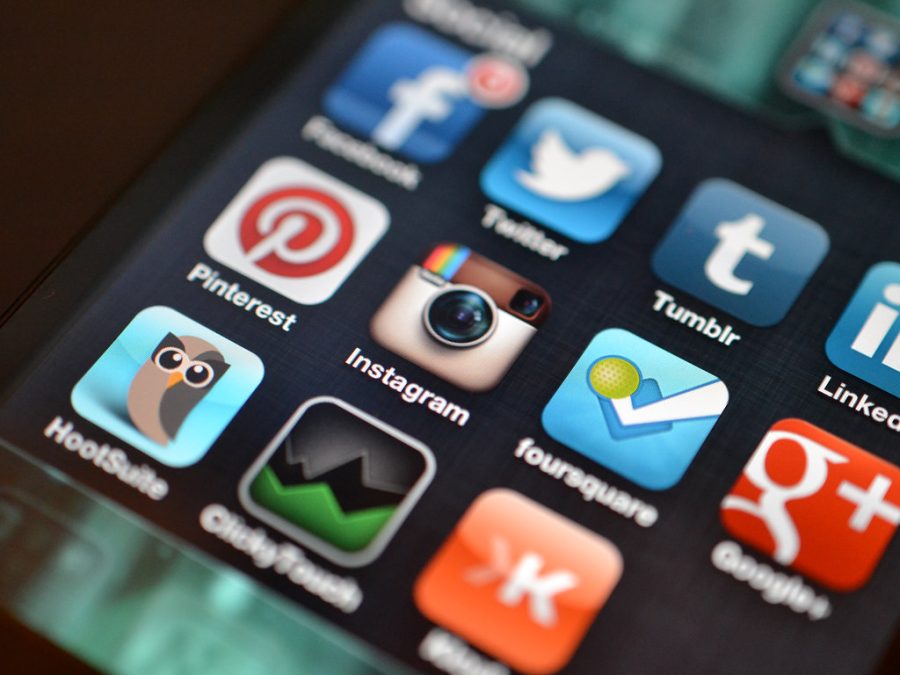Slider Image courtesy of Flickr.
Due to the national shock that took place on Jan. 6, 2021, President Donald Trump’s Twitter account has been banned for inciting the violence that happened at the nation’s Capital. His Twitter account was banned, along with accounts on Facebook, Instagram, YouTube, Amazon Web Services, Snapchat, Reddit…the list goes on. It is extraordinary how powerful social media can result in the destruction or empowerment of people, ideas, movements, and places. There is not a single end to the function of social media: It can be used for both positive and negative incentives.
One of the most prominent and relevant social media hashtags today is for the Black Lives Matter (BLM) movement. Generally considered to have been fully birthed after the shooting of Trayvon Martin 2012, an African-American, the movement has experienced major development in the subsequent 8 years.
Most notably, after the death of George Floyd on May 25, 2020, BLM and other related hashtags were mentioned around 80 million times on platforms such as Twitter, Facebook, and Reddit, a number far exceeding certain brands that receive the majority of interest on social media. Not to mention the shocking clip of Floyd on the ground under the knee of former officer Derek Chauvin that spiraled across the internet.
Other than news spreading and organizing protests online, “Blackout Tuesday” was another social media event originally for entertainment companies such as Spotify, Apple Music, and TikTok to halt their production for one day in light of the protests in Minneapolis after Floyd’s murder. Eventually, the initiative was extended to any person who wished to support the message and honor the demonstrations, flooding social media platforms with blogs of blank black screens. Although there was some controversy among music artists about its true intention, since it was originally to strictly halt the business of music industries, it was still a significant phenomenon on social media.

Another movement that has gained broad attention on social media is #MeToo, a movement founded in 2006 by Tarana Burke to enable women to speak up about their experiences with sexual harassment. The peak of the movement arguably occurred after former President Donald Trump’s inauguration, in conjunction with the sentiments of the Women’s March in 2017.
In October of 2017, American actress Alyssa Milano tweeted for anyone who had been sexually assaulted or harassed to reply with #MeToo. Over the course of the next year, the Me Too hashtag was used up to 19 million times since Milano’s original tweet.
The Me Too movement was also heavily focused on supporting the convictions of well known men, namely in the case of Harvey Weinstein. In fact, according to Vox, a total of 262 men were accused of sexual misconduct from April of 2017 to the end of 2018. In the case of Harvey Weinstein, one accusation came after another, and eventually Weinstein had dozens of women, especially well known actors, stacked against him in court.
The instantaneous spread of information and news taken advantage of by the Me Too movement certainly led to Weinstein’s inevitable downfall, leading to a broader and more controversial aspect of social media: cancel culture.
A new scandal, reminiscent of those led by the Me Too movement, involves viral media sensation, Carson King, with the alias “CallMeCarson.” He is a prominent entertainment streamer in the Twitch community as well as a content creator on YouTube, and recent allegations began with one young woman on Twitter, claiming that King had engaged in a relationship with her. She provided screenshots of direct messages in Discord to prove her claim.
The accuser, Sam, or @miniborb on Twitter, now no longer has an account, as it was deleted around two weeks after she sent her tweet with the reason remaining unknown. But she was able to prove that at the current time, King was 19 years old while she was only 17, and that they had exchanged nude photos together, largely by King’s own request.
Eventually, this single allegation resulted in multiple follow ups from close friends of King, namely members of the Lunch Club group, which was a former brand of content creators on YouTube that collaborated together. Allegedly, King confessed to fellow Lunch Club members of the inappropriate relations he had with Sam. “Traves,” “Jschlatt,” Charlie “Slimcicle” Dalgleish, and Noah “Hugbox,” all former members of Lunch Club, had confirmed his confession and gave their thoughts on the matter after the news was out. Noah and Travis were interviewed for their response while “Jschlatt” uploaded his own response on YouTube and Dalgleish tweeted about it
After one volley of accusations had hit King’s reputation, a second accuser shared her story on Twitter a few days later, where she claimed that a similar situation as Sam’s had happened to her, only that King was now 20 at the time and she was 17.
After King had already undergone a complete severance from social media and posting content after the allegations, another YouTuber, by the alias, “The Narrator,” posted a video on Jan 7 2021 about his experience with King as a former colleague. He dedicated a one hour stream to talking about his relationship with King, and revealed that King had overall stagnated the progress of The Narrator’s career.

Essentially, the two had been involved in a podcast project that King decided to take over and officially terminate, even though the podcast channel and idea itself had been owned by The Narrator. They had a toxic relationship that drew each other further against one another, giving King the opportunity to post a video of him announcing the end of the podcast without the consent of the rest of the podcast members. In the process, King made The Narrator out to be a horrible person and turned the internet against him.
The Narrator waited three full years before releasing his story to the public ear. Only with the culmination of multiple accusations against King did The Narrator put his last say in the matter. What is astonishing about The Narrator’s story is that it frankly has nothing to do with King soliciting sexual photos of underaged girls, but the fact that he was an evil person overall, conspiring against a fellow content creator with whom he worked.
To those unfamiliar with the Twitch or YouTube community, King has been one of the most influential, fast growing, and admired content creators on both platforms. The general reaction of his fan base was not necessarily violence, hatred, or cancellation, but rather sheer disappointment.
Through a recent and still ongoing event, it can be observed that social media, and the traversability of information is incredibly powerful in determining the future outcome of someone’s career. It only took one tweet to cause a volley of accusations that essentially ruined King’s presence on social media, at least for now. Take, for example, a historical incident of the same role the media played in the events leading up to the American revolution of the 18th Century. The Committees of Correspondence were a group of colonial revolutionaries that served to circulate information about rebel movements in the colonies as well as Great Britain’s actions against the colonies, all during the rising tensions between the two sovereignties that ended in war.
Even back then, Americans used the media to mobilize protests against their opponent as well as ideas for their cause. Only now, we also use our media to bring down the careers and humanity of well-known people for making mistakes and committing crimes: mistakes and crimes which were witnessed by millions of people all at once.















































































